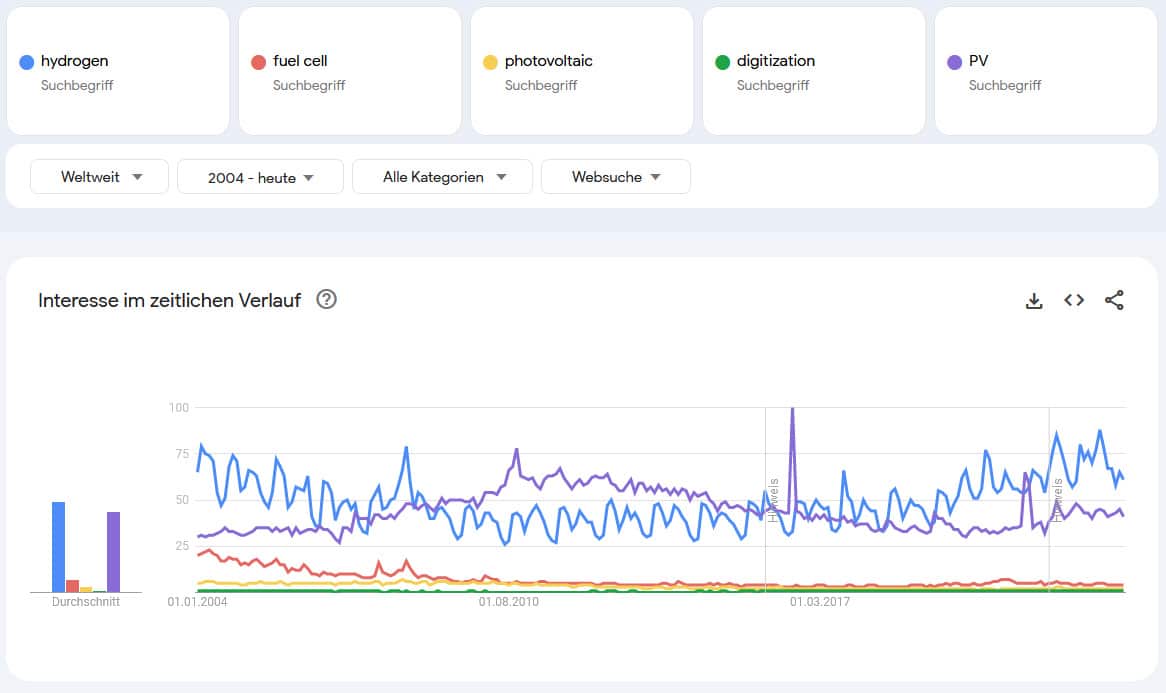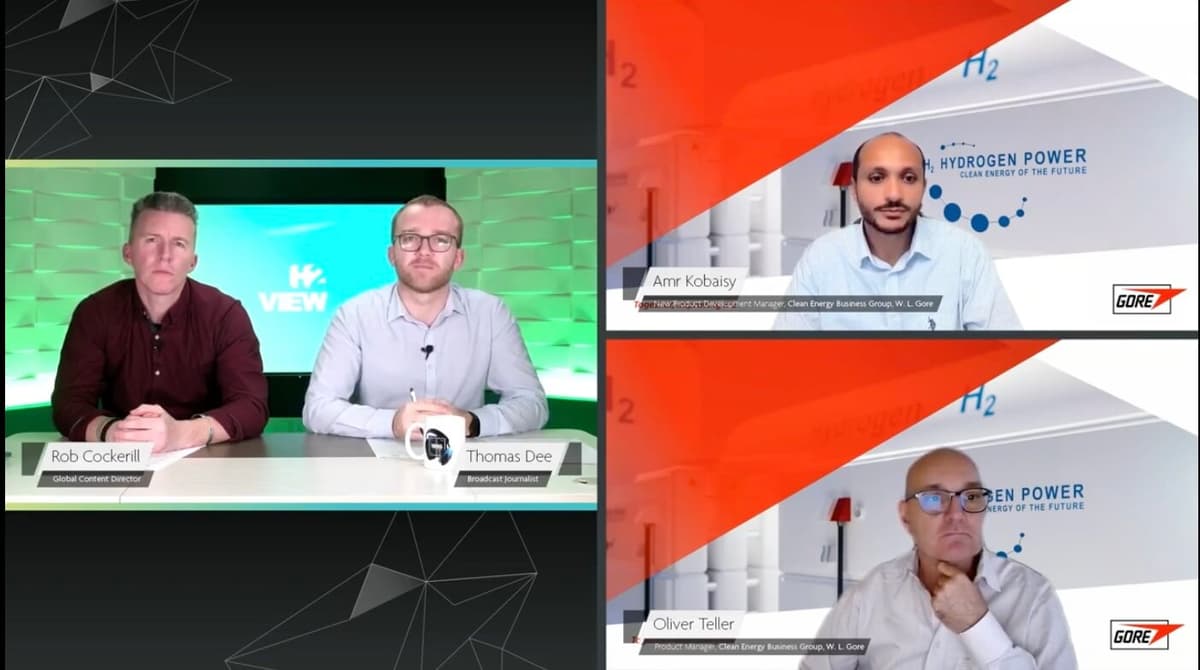
At the moment, hydrogen is – at least in the energy sector – on everyone’s lips. This is also evidenced by research into the latest trends. US corporation Google offers an online service that provides information about the popularity of terms entered into its Google search engine and how it changes over time. The results are given in relation to the total volume of searches and are available week by week from 2004.
The tool provides a striking illustration of the level of interest in a topic – both now and in the past. The performance of the same keyword in different languages can also provide insight into how much attention a subject is receiving in different parts of the world. For example, the tool shows that the German word for “hydrogen” (Wasserstoff) has been Googled much more often since the end of 2018 than in the 15 years prior to that. Peaks occurred in 2020 and 2021. Since then, the popularity of this search term has remained, on the whole, relatively high.
In German searches, “hydrogen” is looked up far more frequently than the equivalent words for “electric mobility,” “fuel cell,” “wind power” or “digitization.” Though “photovoltaic” is more popular still if you don’t include the spikes in 2020 and 2021. In English-language searches, “hydrogen” is used for many more search inquiries (see fig.) than, for instance, “fuel cell,” “digitization,” “photovoltaic” or even “PV.” While “hydrogen” has remained, on balance, consistently popular for almost 20 years, searches for “fuel cell” were more common at the start of the century.







